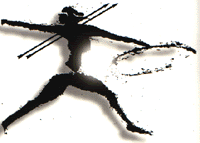(AFRICA)
 
|
Lyn Wadley looks at Pleistocene archaeological records of South Africa to suggest that the continuous gender stereotypes used to interpret Stone Age archaeology have led to an androcentric understanding that “trivializes” the division of labor and sociological relations, arguing that “these gender stereotypes are inappropriate when applied to modern hunter-gather groups” and therefore “almost certain inappropriate for people in the past” (1998:70) . Most importantly, “Stone Age social and gender arrangements were not static” and that any concepts of men as hunters and women as gatherers “should not be seen as an immutable model for the Stone Age” (Wadley 1998:79). Examining the tools found in the archaeological record does not necessarily help with assigning gender roles because it is generally assumed that men made and used all stone tools in exaggeratedly `male’ activities, especially hunting, while the experiments done in women’s lithic studies focus tools used for nutting, leatherworking and woodworking, assuming there were no hunting activities. Joan Gero suggests a feminist analysis of tool use in prehistory allowing for the possibility that women not only used tools, but probably made them because it is inconceivable that women would wait to borrow tools every time they needed them – it seems more likely that women, being smart enough and strong enough to make tools, did so (1991:170). One of the problems inherent in trying to understand if Plaeolithic women made tools or hunted is that there is a tendency to assume because the primary toolmakers in modern western society are men, that it was the same in prehistory. The truth is that there is no way to know for certain who made or used any of the tools found in the archaeological record. Assumptions may be made based on where the lithics were found - with a hunting cache, in a home site or in a burial - but unless the possibility that men and women both contributed tools to the archaeological record is considered, it seems that only half the story will ever be told. |


